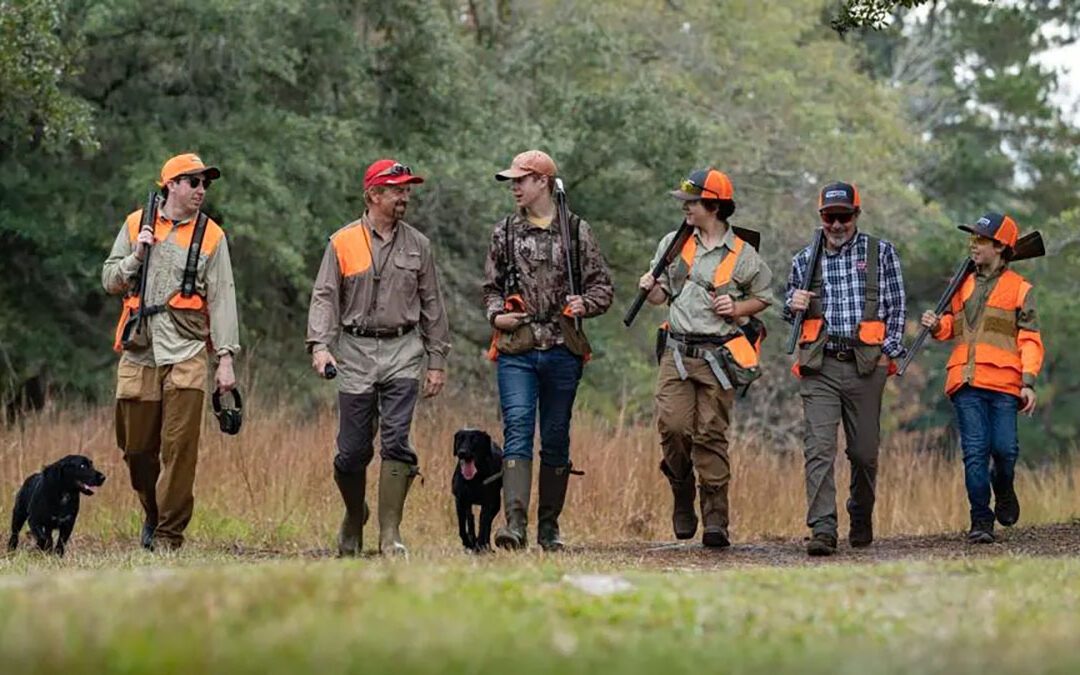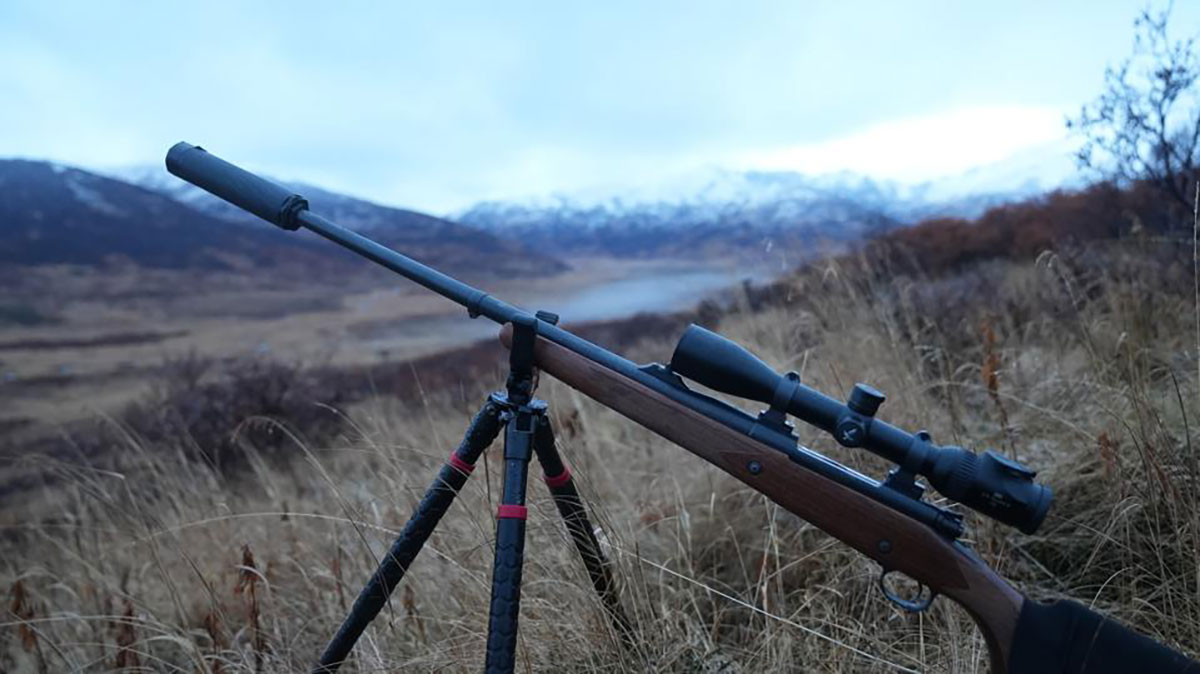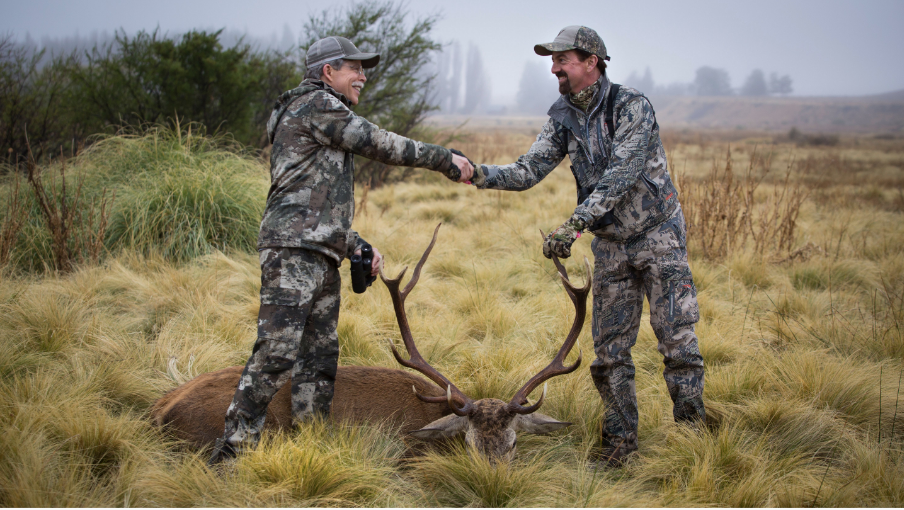Defunding efforts that promote getting kids outdoors is antithetical to the current administration’s own stated goals of addressing America’s psychological woes.
As America faces a storm of geopolitical threats, endures a flood of fentanyl streaming across a largely open southern border — now killing some 100,000 Americans annually, wrestles with soaring inflation, and experiences unmitigated crime in many of our largest cities, the Biden Administration’s recent move to defund schools that offer hunter safety and archery programs has many questioning President Biden’s priorities. The administration seems to be misfiring on many cylinders and, not surprisingly, Joe Biden’s approval rating continues to plummet. “It’s right up there with jock itch,” recently quipped Senator John Kennedy.
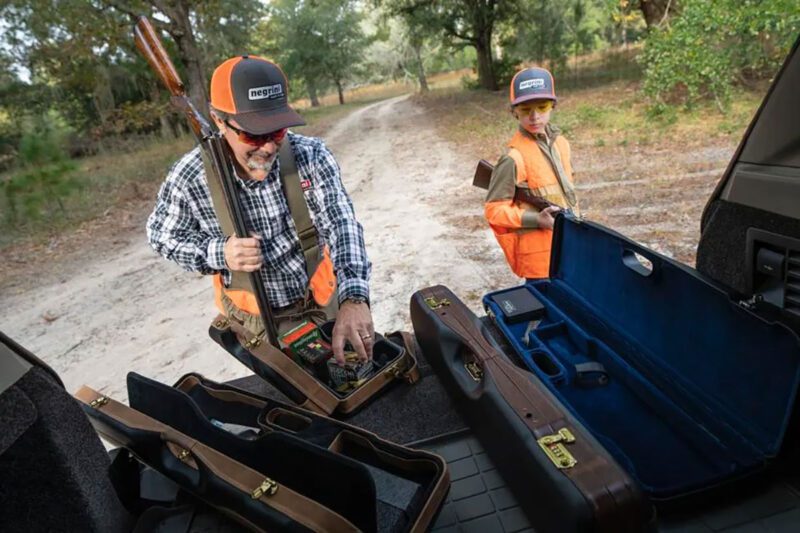
A father-son tandem head afield to hunt quail in South Carolina. Sportsmen’s groups are outraged by President Biden’s move to defund school hunter safety programs. DORSEY PICTURES
The administration is twisting the intent of the Bipartisan Safer Communities Act (BSCA) passed last year — with the help of 15 Republican Senators voting in favor—and the Education Secretary, Miguel Cardona, has moved to block funding from the Elementary and Secondary Education Act (ESEA) to schools that offer hunter education and archery programs. BSCA prohibits ESEA funds from being used to provide training in the use of a, “dangerous weapon.”
Two Republican Senators, John Cornyn (TX) and Thom Tillis (NC) who voted in favor of BSCA, are now reacting to pressure from constituents and recently sent a letter to Secretary Cardona, cautioning him that his department has misinterpreted the intent of BSCA.
“The Department mistakenly believes that the BSCA precludes funding these enrichment programs [hunter safety and archery],” the Senators wrote.
The law of unintended consequences (presumably at least those of the Republican Senators), however, prevailed and now many sportsmen and women view the administration’s move as a backdoor attack on the nation’s hunting and recreational shooting traditions and heritage.
Worse, many psychological health experts are warning that removing such programs that encourage outdoor activities will add to the nation’s mental health epidemic. In a recent Pew study, 70 percent of teens say anxiety and depression are major problems. A 2021 CDC report concluded that nearly one in three high school aged students reported having seriously considered suicide.
A recent medical report credits extracurricular activities for helping instill a sense of belonging, improved social development, opportunities to develop leadership skills, cooperation, and peer interaction—key antidotes to widespread feelings of anxiety and depression among our youth. The report went on to add, “Extracurricular activities focused on kids during the time of transition from middle childhood to early adolescence created higher levels of peer belonging, a sense then carried into adolescence.”
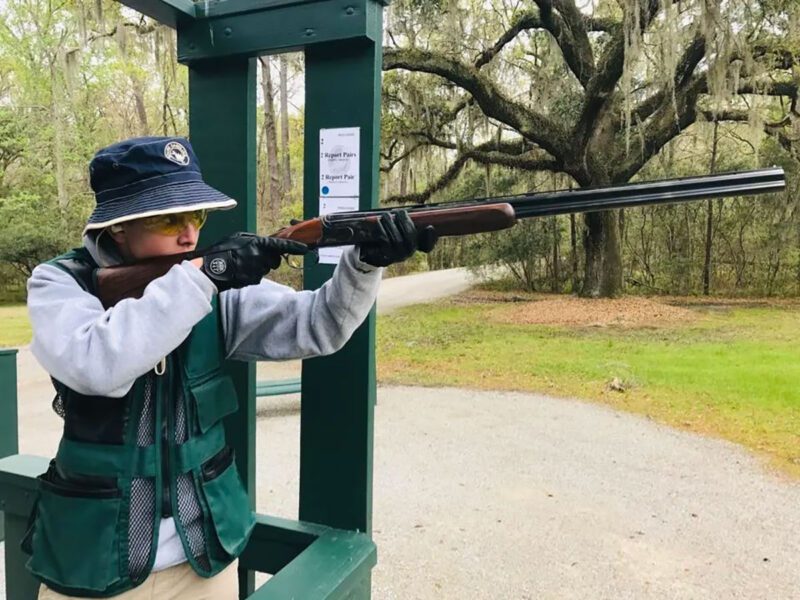
The USA High School Clay Target League has seen a 137 percent increase in participation since 2015. DORSEY PICTURES
For Richard Louv, author of Last Child in the Woods, “Children need to be outdoors, in nature, partly due to a biological reason,” he told Promises Behavior Health, “Human beings still have deep in our DNA and in our psyche, a need to interact with nature. This need comes from our hunter-gatherer past, and despite how radically our lives and our world have changed, that biological need remains.”
The healing power of the outdoors has long been a universal theme of authors through the ages. “Nature itself is the best physician,” wrote Hippocrates. “In wilderness is the preservation of the world,” penned Thoreau.
Despite such benefits, global trends show that children are spending far less time outdoors than their parents did. Instead, kids are increasingly turning to ‘screen time’ and social media which researchers caution is contributing to rampant psychological and other health disorders.
Defunding efforts — like hunter education and the National Archery in the Schools Program — that promote getting kids outdoors where lasting friendships and bonds form and where confidence and self-esteem is bolstered is antithetical to the administration’s own stated goals of addressing America’s psychological woes. In a White House statement issued last May, the Administration proclaimed, “President Biden has made tackling the mental health crisis a top priority.”
Surveys of students who partake in the National Archery in the Schools Program reveal that 40 percent of them report being more engaged in the classroom because of the program and 91 percent said they would pursue other outdoor activities. Nearly 15,000 students participate in the program with some 1,300 tournaments held annually.
In addition, high school competitive shooting programs have grown dramatically in popularity over the last several years. According to a recent Time feature, “In 2015, 9,245 students, in 317 schools across three states, participated in the USA High School Clay Target League. Since then, participation has spiked 137 percent: in 2018, 21,917 students, from 804 teams in 20 states competed.”
The report went on to add, “No scientific research has shown that joining a shooting team makes you more likely to do harm with a gun. And there is no shortage of anecdotal evidence, at least among shooting teams, that describes such structured activities as an antidote to the afflictions often attributed to students who have carried out school massacres, including alienation and social isolation.”
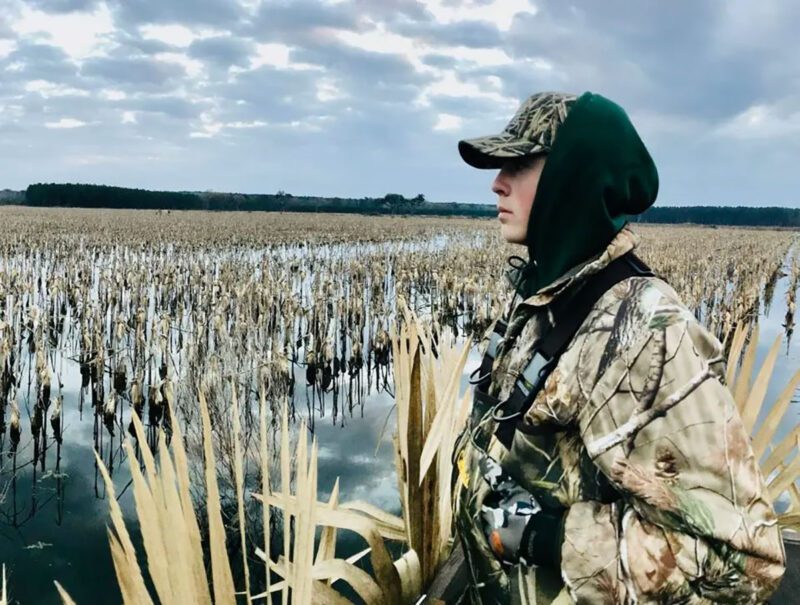
History has shown that kids raised with an appreciation of hunting become future conservation leaders and funders. DORSEY PICTURES
Ball State economics professor Paul Niekamp went further and examined the relationship between violent crime and deer hunting seasons in 21 states over 20 years. He concluded that not only does hunting with firearms and the hunter education training that goes with it not lead to increased firearms violence, but it also decreases it. “My research provides strong evidence that enormous increases in recreational long gun prevalence are not associated with any increase in violent crime,” he said. “In the least populous areas, where long gun prevalence increased 530 percent [during deer seasons], estimates suggest that violent crime actually decreased.”
Given the many clear and present challenges facing America, perhaps the administration would be wise to leave programs that are helping improve the nation’s mental health nightmare well enough alone.
 Featuring Casting Call, Call Time and Director’s Cut this bundle includes a book and film production more than 30 years in the making. Author and Executive Producer Chris Dorsey, along with a team of the world’s best sporting life photographers and cinematographers, embarked on expeditions to distant corners of the globe to create an indelible portrait of wingshooting, fly fishing, big game hunting and the great outdoors. Each large-format 250+ page book includes a DVD with corresponding film shot on location for every chapter. Buy Now
Featuring Casting Call, Call Time and Director’s Cut this bundle includes a book and film production more than 30 years in the making. Author and Executive Producer Chris Dorsey, along with a team of the world’s best sporting life photographers and cinematographers, embarked on expeditions to distant corners of the globe to create an indelible portrait of wingshooting, fly fishing, big game hunting and the great outdoors. Each large-format 250+ page book includes a DVD with corresponding film shot on location for every chapter. Buy Now
